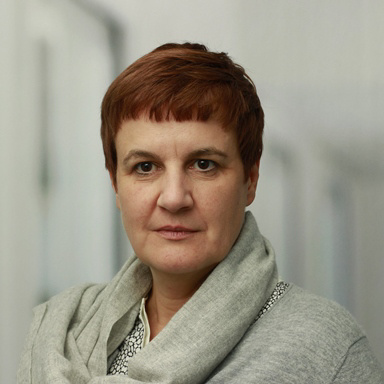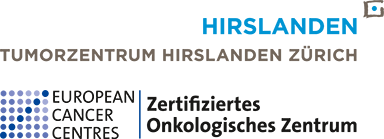The treatment of oncological diseases is complex and requires an interdisciplinary approach. Our Tumour Centre unites a wide range of medical specialists, so that we can care for and support our patients and their relatives during every phase of the disease.
Nutrition advice
Cancer can change a person’s appetite or their body’s nutritional needs, or prevent their body from utilising nutrients as it had before. In order to ensure the patient’s diet meets the new needs brought about by such changes, their food intake must be adapted and the adjustments may not necessarily correspond with what is commonly considered a “healthy diet”. Nutrition advice and nutritional therapy can adapt your diet to your body’s changed requirements in a way that meets your needs and ensures eating remains a pleasurable experience.
Genetic consultations
Some families have a genetic predisposition for a particular type of cancer. During a genetic consultation, a medical specialist will clarify whether there is any need for action and explain all the available options.
Genetic consultations and analyses in the field of cancer (oncogenetics) enable a more precise prognosis of the course of the disease and the choice of a targeted therapy in the case of an existing cancer, regardless of whether it is genetically caused.
Fertility and sexual counselling
Cancer treatments such as chemotherapy and radiotherapy can affect the patient’s fertility and may lead to infertility. At the Tumour Centre, we offer patients a comprehensive range of advice regarding fertility and cancer therapy.
Palliative Care
Palliative care refers to the comprehensive care of patients with chronic and incurable diseases. It is designed to achieve the best possible quality of life during this stage in a person’s life.
Pathology
Pathology is concerned with the development and identification of diseases, primarily through the examination of cells and tissues. Tissue examinations conducted by a pathologist are an important part of the diagnostic analysis within oncology. The pathological findings are used to plan the next phase of the therapy.
Psycho-oncology
In addition to physical complaints, cancer often causes psychological stress. Our experts in psycho-oncology, also known as psychosocial oncology, provide psychological support for cancer patients during all stages of their disease. Our patients can receive assistance from a professional psycho-oncologist throughout their treatment.
Doctors 3
Radiology
Radiology is a branch of medicine that uses medical imaging technologies to diagnose diseases. The technologies can visualise tumours and metastases in patients with oncological diseases.
Radiotherapy
The Institute for Radiotherapy is a certified cooperation partner of the Tumour Centre Hirslanden Zurich. It is concerned with the medical application of radiation to cure or at least alleviate diseases that cause tumours.
Pastoral care
Our pastoral care takes time to listen and talk to patients and their relatives and to provide spiritual or religious support.
Self-Help Zurich
As an important complementary part of health care, Self-Help Zurich and its cooperation partner, the Hirslanden Tumour Centre Zurich, offer self-help groups for those affected and their relatives, which can be helpful in coping with an illness or a difficult situation in life. The Tumour Centre holds the "We are self-help friendly" award from the Swiss Self-Help Foundation.
Social counselling
In addition to medical questions, a cancer diagnosis can also raise questions concerning the patient’s employment situation, options for financial support and other issues regarding everyday life. Social counsellors are trained to help patients find answers to these kinds of questions.
Stoma consultations
Various diseases and surgeries can make it necessary to create an artificial intestinal or bladder outlet (stoma). Stoma consultations before, during and after your stay in hospital will provide you (and your relatives, if necessary) with the information you need to handle a stoma and the associated equipment.





